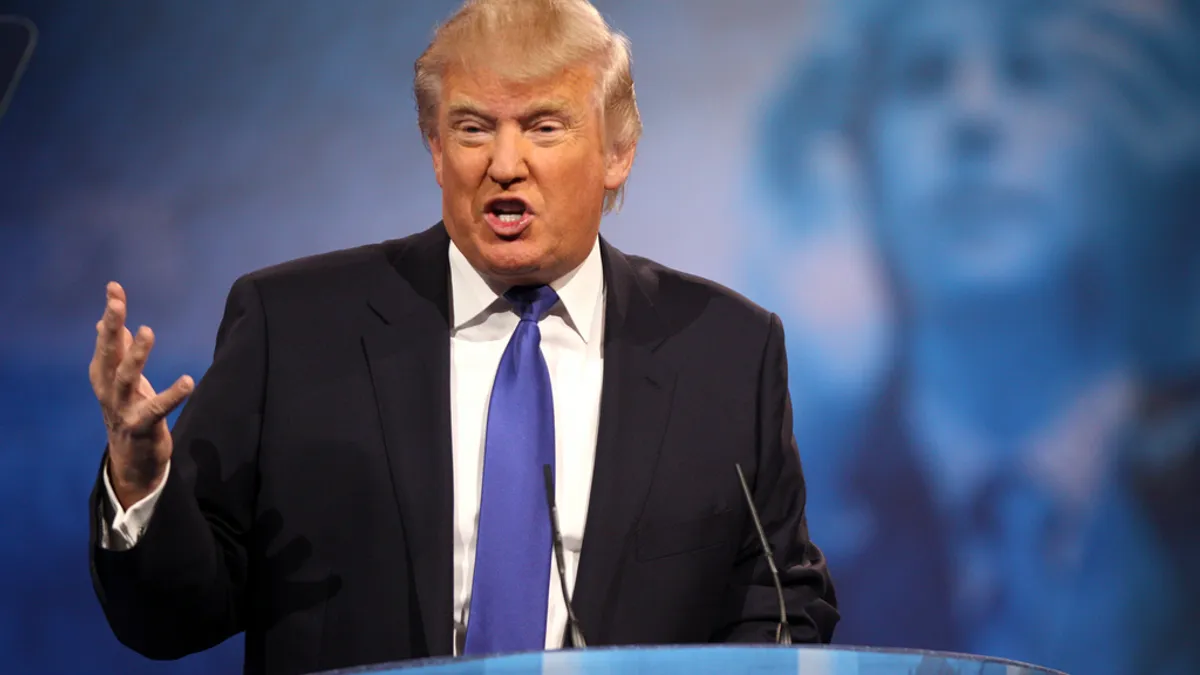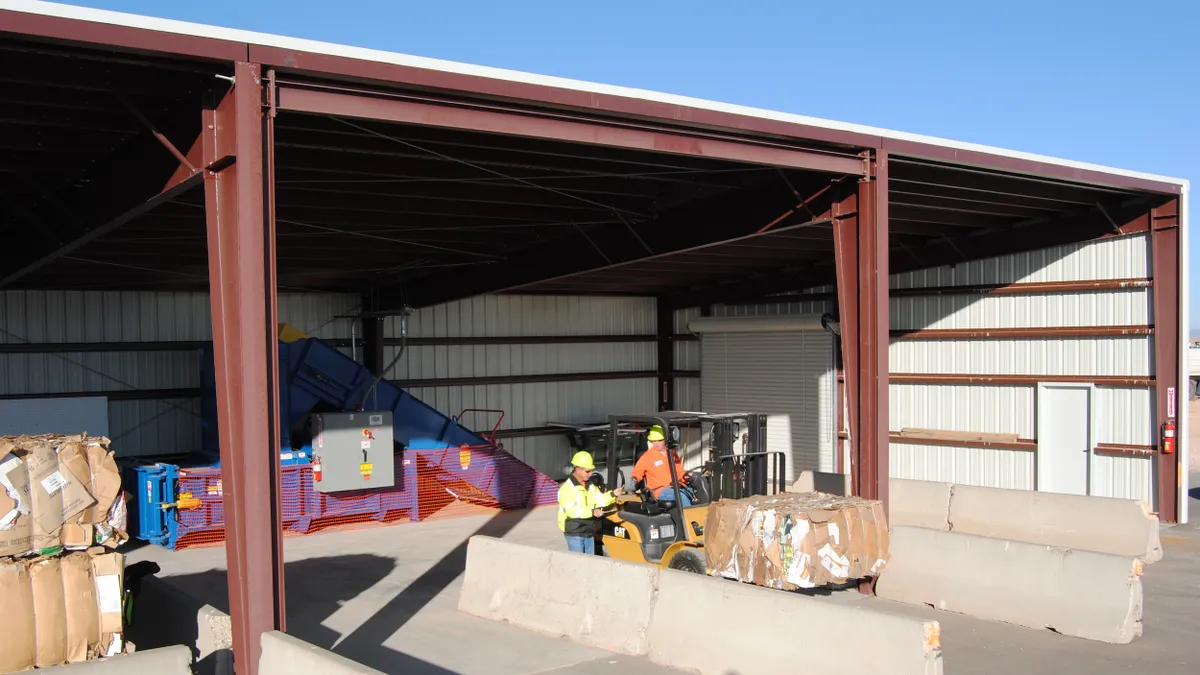This week saw President Donald Trump release his proposed budget for 2019, Boston convene the first meeting of an advisory committee on 'zero waste,' and some hard hits from China's import policies.
In other big news, we have earnings reports for Waste Management and Waste Connections. Let's get to the weekly review.
Stories that drove the week
Trump's proposed budget would bring deep cuts to the Environmental Protection Agency, which includes programs connected to waste, recycling and landfills.
- Trump's budget proposal zeros out the Landfill Methane Outreach Program, an office which shares best practices and resources for landfills looking to reduce their methane emissions.
- The proposal would also bring big changes to programs under the Resource Conservation and Recovery Act (RCRA), including zeroing out a program for "waste minimization and recycling."
EPA says by zeroing out certain programs, it can focus more on its "core environmental work," further supporting Administrator Scott Pruitt's "back to basics" approach. A large part of that mission under Pruitt has been making progress at Superfund sites, yet even the Superfund program would see its budget substantially cut under Trump's proposal.
Waste Management and Waste Connections released their Q4 earnings and held earnings calls, both showing profit increases in 2017 compared to 2016.
- Waste Management showed total revenue of $3.65 billion in Q4 2017, an increase from $3.46 billion in the same period last year. During the earnings call, CEO Jim Fish gave more insight on why the company is spending $65 million on bonuses for front-line employees and hinted at a "fully robotic sort line" currently being developed.
- Waste Connections showed total revenue of $1.16 billion in Q4 2017, an increase from $1.05 billion in the same period as last year. The company has been busy in 2018, with multiple acquisitions including Bay Disposal & Recycling out of North Carolina. CEO Ron Mittelstaedt also described plans to raise the company's minimum wage to $12 per hour and increase 401(k) matching.
Despite some initial unease among the big companies regarding China's import ban, overall operations in 2017 continued to be profitable in the solid waste sector. This year, we've got our eyes on the possibility that the changes in the federal tax code could lead to big capital investment, as well as continuing conversations around employee retention and safety.
Boise, ID is facing some difficult decisions regarding its residential recycling program due to disruption from China.
- Just one month after discontinuing residential collection of mixed plastics, the city is considering discontinuing collection of mixed paper because of rising processing costs at a local MRF.
- The Public Works Director told the Boise City Council that mixed paper collection could be put on pause for a few months, or the city could begin to charge residents more for the same service.
The council is going to revisit the issue early in March, though neither option is viewed as favorable. Either would require messaging and education campaigns with residents who could be upset over the changes to their service. It's a reminder that, despite some good news brewing in regard to international markets, the domestic recycling industry is going to continue to be seriously impacted by policies across the Pacific.
An advisory committee on 'zero waste' met for the first time in Boston, discussing several options to move the city's plans forward.
- A residential subcomittee discussed pay-as-you-throw and better enforcement for illegal dumping, as well as the impacts of 'zero waste' policies on low-income residents.
- A commercial subcomittee had a somewhat contentious discussion about the possibility of creating exclusive franchise zones.
Perlmutter Associates, a local consulting firm, has been tasked by Boston with taking necessary steps to present the city with a final 'zero waste' plan, including taking steps to analyze data and facilitate stakeholder conversations. Currently, the firm's goal is to release a 'zero waste' plan by the end of the year to help with upcoming waste contract negotiations for 2019.
How are Chinese import policies playing out across the U.S.?
Further signs of strain have become apparent in California, a state that has so far avoided the media attention of its Pacific Northwest neighbors. Metropolitan Recycling in Bakersfield has stockpiled an estimated 600,000 tons of material over the past six weeks, even after slowing down its line and staffing up to improve quality.
North Carolina, which has also flown under the radar, has seen stockpiling in New Hanover County.
The situation has only gotten more challenging for Oregon. The state's Department of Environmental Quality has now granted disposal concurrences for 14 companies as of Feb. 14. An estimated 6,107 tons of recyclable material has been disposed as a result.
Rogue Disposal has restricted its list of accepted materials in multiple municipalities. One small city has canceled curbside service and another may have to do the same soon.
You can follow all of this information on our 50 state tracker page. Tips and feedback are highly appreciated.
Other interesting stories from the week...
- A city councilmember in Los Angeles is publicly talking about canceling the franchise system, RecycLA.
- Nestle Water announced it was launching a new, 700 mL bottle made from 100% recycled PET.
- The Solid Waste Association of North America announced it is convening a task force of industry stakeholders and technical experts to help boost domestic recycling markets.
- The Ocean Cleanup, which hasn't been making much noise lately, announced it has leased space in San Francisco to construct its first trash-catching device.
- New Orleans had to clean up more than 620 tons of trash from Mardi Gras. Officials expect that number to increase.









